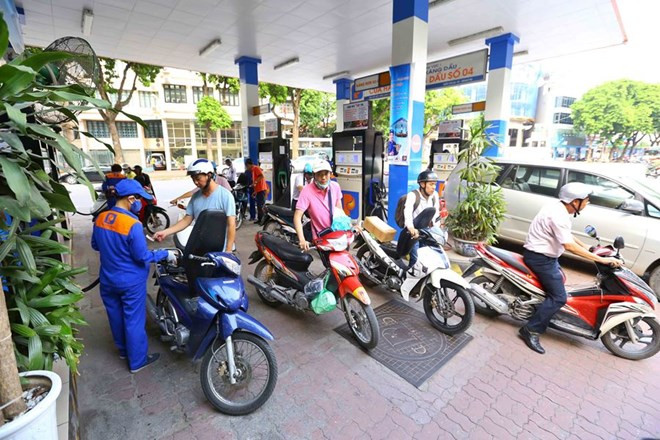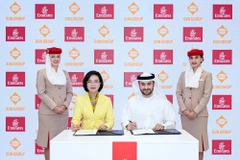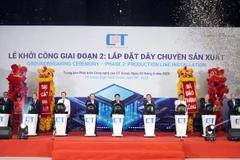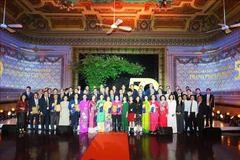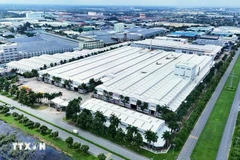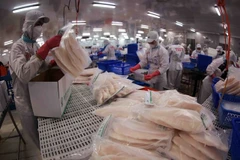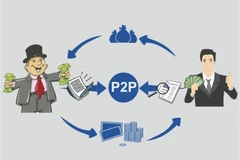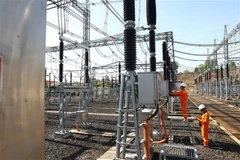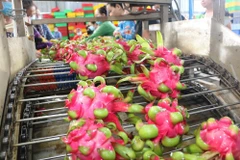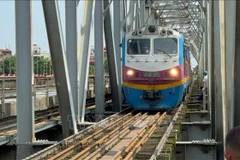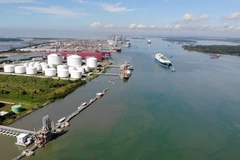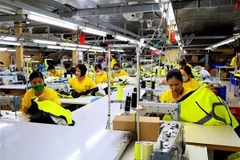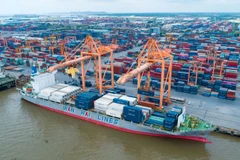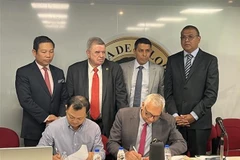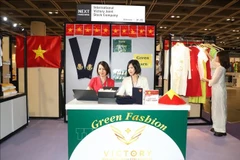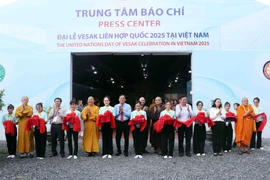According to calculations by the Ministry of Industry and Trade (MoIT), from the beginning of 2018 when RON A92 petrol disappears, the country will need about 5.5 million cubic metre of E5 fuel. This means creating 250,000-270,000 tonnes of Ethanol E100 as the raw material for bio-fuel blending.
The MoIT forecasts that the domestic supply of E100 will reach about 520,000 cubic metres per year, adequate to meet the demand for the blend of the new environmentally friendlier E5 fuel, a mix of A92 petrol (95 percent) and Ethanol E100 (5 percent).
At a recent conference held by the Ministry of Industry and Trade in Hanoi, Phan The Rue, chairman of the Vietnam Petroleum Association (Vinpa), said that although many large petrol agents had urgently prepared for the supply of E5 bio-fuel to meet local and national demand, the State still needed to support petty traders with weaker financial capacity so that they can keep up with the changes.
To qualify for selling E5 bio-fuel, traders need to allocate additional fuel pumping facilities and storage tanks for biofuel E5 at their petrol stations. This requires a large amount of capital. Other expenses involved could also be quite high, Rue said.
Apart from this, consumers were not really confident about E5 fuel, Rue said, adding that the current E5 bio-fuel consumption accounted for only 9 percent of total petroleum consumption in the market.
A representative of the Department of Industry and Trade in HCM City - one of the pioneers in the application of E5 bio-fuel - said that on August 31 this year, the city had 240 out of 533 petrol stations distributing E5 bio-fuel.
Average consumption reached more than 8,000 cubic metres a month, accounting for only 6.2 percent of total petrol consumption in the city, down 3.3 per cent compared with 2016.
"E5 bio-fuel consumption experienced a downtrend because consumers still haven’t got used to its use. Meanwhile, retailers have taken no measures to try and change this situation,” he said.
Many agents and retailers are complaining about the prices of biofuel E5, which is higher than that of RON A92 by about 230 VND per litre.
With higher production costs than other kinds of petrol, E5 requires higher capital, but offers less profit.
Unstable supply
At the conference, Nguyen Manh Hung, deputy chairman and general secretary of the Standard and Consumer Association, said the benefits of E5 bio-fuel had been widely propagated and its quality standards had also been guaranteed by the Government.
However, the source of cassava, the main raw material in the production of ethanol used for the mixture of E5 fuel, was dependent on weather conditions, leading to shaky yields and prices, directly affecting the supply and prices of the special bio-fuel.
“Previously, cassava was sold for about 1,500-1,700 VND per kilogramme. But since the first ethanol plant was put into operation, cassava prices have climbed to 3,500 VND per kilogramme, or even to 4,500-5,000 VND per kilogramme,” Hung said.
He is concerned that when more ethanol plants come into operation, the demand for cassava will jump.
Moreover, as cassava prices rise while crude oil prices fall sharply from 147 USD per barrel in 2008 to about 50 USD per barrel now, domestically-made E5 bio-fuel will be less competitive compared with imported mineral fuel RON A92.
According to Luu Quang Thai, chairman of the Vietnam Bio-fuel Association, stabilising the supply of cassava as well as keeping it traded at reasonable prices is a must to make E5 bio-fuel prices competitive.
Policies should encourage consumption and support petrol distributors and producers to ensure supply, they said.-VNA
